Workshops/Tutorials
Tutorial 1: Control of Multi-agent Systems with Python
Organizers
Masaaki Nagahara, The University of Kitakyushu, Japan
Shun-ichi Azuma, Nagoya University, Japan
Statement of Objectives
Control of multi-agent systems is one of the major topics in systems and control. The control, which is also known as cooperative control or distributed control, refers to the control of multiple agents such as mobile robots or drones that locally interact with each other. Each agent has a local control law using information of neighboring agents, to achieve a global goal such as consensus. The notion of multi-agent systems has also been attracting attention in the fields of artificial intelligence, which is also referred to as swarm intelligence. Collaboration between the two fields is important to develop the theory more deeply. For this, we will also give Python codes for simulation and computation for the method since Python is one of the most popular computer languages in the field of artificial intelligence.
Intended audience
The workshop aims at attracting graduate students and researchers with an interest in the topics of multiagent systems in view of systems and control. The target audience also includes researchers from industry who want to know the recent development of the control theory. The presenters (listed below) are top researchers in the field, and their talks will be accessible to the broad range of audience we are expecting.
Speakers
Masaaki Nagahara, The University of Kitakyushu, Japan
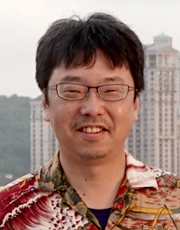
Masaaki Nagahara received the bachelor's degree in engineering from Kobe University in 1998, and the master's degree and the Doctoral degree in informatics from Kyoto University in 2000 and 2003, respectively.He is currently a Full Professor with the Institute of Environmental Science and Technology, The University of Kitakyushu. He has been a Visiting Professor with Indian Institute of Technology Bombay since 2017. His research interests include control theory, machine learning, and sparse modeling. He received Transition to Practice Award in 2012 and George S. Axelby Outstanding Paper Award in 2018 from IEEE Control Systems Society. He also received Young Authors Award in 1999, Best Paper Award in 2012, and Best Book Authors Award in 2016, from SICE, and Best Tutorial Paper Award in 2014 from IEICE Communications Society. He is a senior member of IEEE.
Shun-ichi Azuma, Nagoya University, Japan

Shun-ichi Azuma received his B.E. degree in electrical engineering from Hiroshima University, Higashi Hiroshima, Japan in 1999, and M.E. and Ph.D. degrees in control engineering from Tokyo Institute of Technology,Tokyo, Japan in 2001 and 2004, respectively. Subsequently, he served as an Assistant Professor in the Department of Systems Science, Graduate School of Informatics, Kyoto University, Uji, Japan from 2005 to 2011 and an Associate Professor from 2011 to 2017. He is currently a Professor at Nagoya University. He served as an Associate Editor for IEEE Transactions on Control of Network Systems from 2013 to 2019, and serves as an Associate Editor for the IEEE CSS Conference Editorial Board since 2011, IFAC Journal Automatica since 2014, Nonlinear Analysis: Hybrid Systems since 2017, and IEEE Transactions on Automatic Control since 2019. His research interests include analysis and control of network and hybrid systems.
List of topics
In this tutorial, we will review recent advances of control of multi-agent systems and introduce recent applications of the theory with Python codes. We give lectures on
• Introduction to multi-agent systems and applications (M. Nagahara)
• Linear algebra and graph theory (M. Nagahara)
• Consensus control (S. Azuma)
• Coverage control (S. Azuma)
Program
| 10:00~17:00 | 1. Introduction to multi-agent systems and applications (M. Nagahara) 2. Linear algebra and graph theory (M. Nagahara) 3. Consensus control (S. Azuma) 4. Coverage control (S. Azuma) |
The presentations are interactive and flexible, and we do not fix the time schedule for this session.
We recommend the audience to install Python on your PC, or to use Google Colaboratory on your web browser: https://colab.research.google.com/
Workshop 1: Sharing Systems for Energy and Mobility: Overview and Emergent Topics
Organizers
Yoshihiko Susuki, Osaka Prefecture University, Japan
Co-organizers
Yutaka Ota, Osaka University, Japan
Statement of Objectives
System-level innovation in energy and mobility is the key enabler for realizing a zero-emission, carbon neutral society by 2050. In the Energy domain, a zero-emission electricity grid will emerge by a large introduction of renewable energy resources such as solar power and offshore wind. Energy efficiency technologies will be also penetrated in multi-scale such as households, commercial buildings, and cities. In the Mobility domain, electrification of automobiles supported by the zero-emission grid and AI-based technologies including autonomous driving will be progressed. In addition to these technological aspects, economic and human-centric perspectives, needless to say, should be involved in their realization and acceptance in the society. The research team including the organizers and speakers in this workshop, originally initiated by the JST-CREST project (2015-2020, PI: Professor Tatsuya Suzuki, Nagoya University, Japan), has started fundamental research on science and technology for the system-level innovation in terms of the so-called “sharing” and “sharing-economy” concepts. The aim of this workshop is to provide with audience an opportunity of sharing our ideas and results for making a new domain of science and technology of sharing systems for energy and mobility. An overview of the sharing-systems research will be provided in the beginning of the workshop. Emergent topics of research emphasized on mobility, economy, human, and energy aspects will be presented. Also, it will open up to a wealth of research perspectives, with limitations to be overcome and open problems to be solved. Related topics will be also picked up from the recent book, “Design and Analysis of Distributed Energy Management Systems: Integration of EMS, EV, and ICT (Springer Nature, 2020),” by Professor Suzuki and many of the speakers in this workshop.
Intended audience
Anyone who is interested in emergent domains of control/management systems for energy and mobility
Speakers
Yutaka Ota, Osaka University, Japan
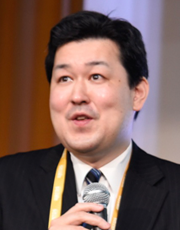
Yutaka Ota received his Ph.D.Eng. degree from the Nagoya Institute of Technology in 2003. Presently, he is a Specially Appointed Professor of Mobility System Joint Research Chair, Osaka University. His research interests include vehicle grid integration, digital twin simulation, and cyber physical system for smart cities.
Shinkichi Inagaki, Nanzan University, Japan
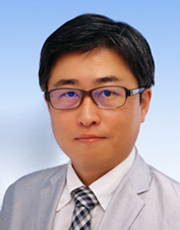
Shinkichi Inagaki received his PhD degree in engineering from Tokyo University in 2003. Presently, he is a Professor of Faculty of Science and Engineering, Nanzan University, Japan. His research interests are system engineering, robotics, and energy management systems.
Kenji Hirata, University of Toyama, Japan
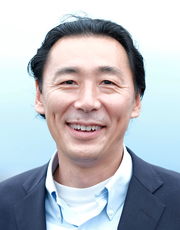
Kenji Hirata received his Ph.D. degree in information science from the Japan Advanced Institute of Science and Technology, Japan, in 1999. He is a professor in the Faculty of Engineering at the University of Toyama, Japan. His research interests are in analysis and control synthesis for hybrid and switched dynamical systems, and distributed decision making in power demand and supply networks.
Yasuaki Wasa, Waseda University, Japan
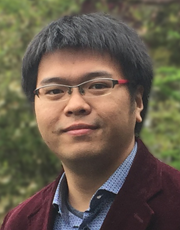
Yasuaki Wasa received the Ph.D. degree in mechanical and control engineering from Tokyo Institute of Technology, Japan, in 2016. He is an assistant professor in the Department of Electrical Engineering and Bioscience at Waseda University, Japan, since 2019. He is the co-editor of the book "Economically Enabled Energy Management" (Springer Nature, 2020). His research interests include control/decision systems synthesis in games of dynamic cyber-physical & human systems.
Kenta Tanaka, Musashi University, Japan
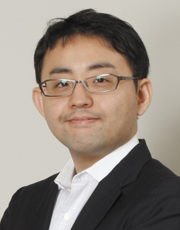
Kenta Tanaka received a Ph.D. degree in environmental studies from Tohoku University, Japan, in 2012. He is a professor in the Faculty of Economics at Musashi University, Japan, since 2019. His research interests are environmental and energy economics fields that include analysis of energy use behavior of economic entities.
Shinya Yoshizawa, Osaka University, Japan
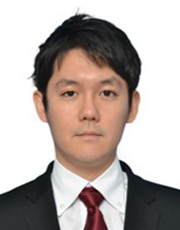
Shinya Yoshizawa received his Ph.D. degrees in engineering from Waseda University, Tokyo, Japan in 2016. Presently, He is a Specially Appointed Lecturer at Mobility System Joint Research Chair, Osaka University, Osaka, Japan. His current research interests include the operation and control of active distribution systems and smart grids.
Katsuya Sakai, Osaka University, Japan
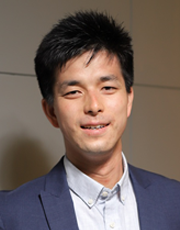
Katsuya Sakai is a Specially Appointed Lecturer of Osaka University, Japan. He received Doctor of Engineering (civil engineering) from Tokyo Institute of Technology in 2015. His research interests are traffic assignment and congestion management.
Yoshihiko Susuki, Osaka Prefecture University, Japan
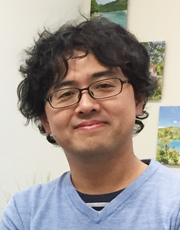
Yoshihiko Susuki received his PhD degree in engineering from Kyoto University in 2005. Presently, he is an associate professor in the Department of Electrical and Information Systems, Osaka Prefecture University, Japan, since 2016. His research interests are dynamical systems theory, energy engineering, and control applications.
List of topics
• Overview: Science and technology of sharing systems for energy and mobility (Y. Ota)
• Mobility aspect: Electric-vehicle sharing and its utilization for energy management via P2P approach (S. Inagaki)
• Economic and human-centric aspects: Integration by market mechanism, control and technology diffusion for sharing systems (K. Hirata, Y. Wasa, and K. Tanaka)
• Energy aspect and demonstration: Design of an energy management system with car-sharing service and demonstration possibilities for future smart cities (Y. Susuki, S. Yoshizawa, K. Sakai and Y. Ota)
Program
| 13:00-13:30 | Opening remark and overview by Prof. Ota |
| 13:30-14:20 | Mobility aspect by Prof. Inagaki |
| 14:20-14:30 | Break |
| 14:30-15:20 | Economic and human-centric aspects by Profs. Hirata, Wasa, and Tanaka |
| 15:20-15:30 | Break |
| 15:30-16:20 | Energy aspect and demonstration by Profs. Susuki, Yoshizawa, Sakai, and Ota |
| 16:20- | Discussion and wrap-up |
Workshop 2: Mean Field Game: Fundamentals and Applications
Organizers
Tielong Shen, Sophia University, Japan
Co-organizers
Minyi Huang, Carleton University, Canada
Statement of Objectives
Mean field game (MFG) is a new branch of game theory. It designated a greatly effective methodology for analyzing differential games with a large number of interacting agents. This analytical machinery sheds light on the formation of collective behavior in large complex decision models involving many agents by relating it to the micro-behavior of individuals. The overall methodology provides the ground to develop rich results in stochastic analysis, control theory, partial differential equations, and numerical analysis. The applications ranging from economics to operational research and from social sciences to engineering. The pre-conference workshop will address four major topics of interest: i) MFG Theory and Recent Progress, ii) Mean Filed Stochastic Control, iii). Numerical Methods in MFGs, and iv). MFG Analysis of Electric Vehicles Charging. To cover this matter, talks will present recent work and future challenges in a broadly accessible manner.
Intended audience
An introductory overview on MFG theory and its applications will set a common ground for speakers and audience. The list of speakers includes both junior and senior researchers and reflects diverse backgrounds in mathematics and control engineering.
Speakers
Tielong Shen, Sophia University, Japan

Tielong Shen is a Full Professor in control engineering at Sophia University, Tokyo, Japan. He received his PhD degree in Mechanical Engineering from Sophia University 1992, and joined Sophia University as Assistant Professor with Tenure in April 1992, where he is currently chairing Shen Laboratory. His research interests include control theory and applications in automotive powertrain systems, power systems, and mechanical systems. Dr. Shen has author/co-authored eleven text books in Japanese, English and Chinese, respectively, and has published more than 200 research papers in peer-reviewed major journals. He has served SICE, TCCT of CAA, IFAC and IEEE as Chair/vice-chair including General Chair of SICE&CCC2015, IPC Chair of IFAC AAC2016 etc. He is currently a member of the IEEE Technical Committee on Automotive Control and IFAC Technical Committee on Automotive System Control. He is currently serving as general chair of SICE Annual Conference 2021, and general chair of IFAC Conference on ECOSM 2021.
Minyi Huang, Carleton University, Canada

Minyi Huang obtained his Ph.D. from McGill University, Montreal, Quebec, Canada, in 2003. He finished his Ph.D. thesis (Title: Stochastic control for distributed systems with applications to wireless communications [pdf], defended in July 2003) with Professor Peter E. Caines at Centre for Intelligent Machines (CIM) and Department of Electrical and Computer Engineering, McGill University, and Professor Roland P. Malhame at Ecole Polytechnique de Montreal. He was a research fellow at Department of Electrical and Electronic Engineering, The University of Melbourne from February 2004 until March 2006, and a research fellow at Research School of Information Sciences and Engineering, The Australian National University, Canberra during April 2006 - June 2007. Dr. Huang joined Carleton University in July 2007 as an Assistant Professor in Applied Probability in the School of Mathematics and Statistics, where he is a Professor. Dr Huang also holds an M. Sc. degree from Institute of Systems Sciences, Chinese Academy of Sciences, Beijing, and a B. Sc. degree from Department of Mathematics, Shandong University, Jinan, China, both in Systems and Control, and he is a Member of IEEE and SIAM.
Dr Huang's research interests include mean field games, mean field control (social optimization), and stochastic algorithms in distributed multi-agent systems.
Bingchang Wang, Shandong University, China
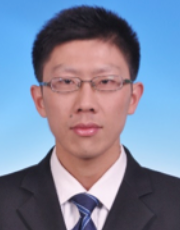
Bing-Chang Wang received the Ph.D. degree in System Theory from Academy of Mathematics and Systems Science, Chinese Academy of Sciences, Beijing, China, in 2011. From September 2011 to August 2012, he was with Department of Electrical and Computer Engineering, University of Alberta, Canada, as a Postdoctoral Fellow. From September 2012 to September 2013, he was with School of Electrical Engineering and Computer Science, University of Newcastle, Australia, as a Research Academic. From October 2013, he has been with School of Control Science and Engineering, Shandong University, China, as an associate Professor. He held visiting appointments as a Research Associate with Carleton University, Canada, from November 2014 to May 2015. His current research interests include mean field games, stochastic control, and event-based control.
Zhenhui Xu, Sophia University, Japan
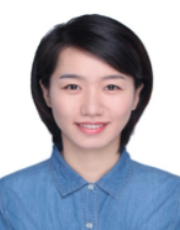
Zhenhui Xu received the M.S. degree in control engineering from University of Science and Technology of China, in 2017 and the Ph.D. degree from mechanical engineering, Sophia University, Tokyo, Japan, in 2021. Since 2021, she has been a Postdoctoral Fellow with the Department of Engineering and Applied Sciences, Sophia University. Her research interests are in the fields of learning-based optimal control and nonlinear systems.
Fuguo Xu, Sophia University, Japan
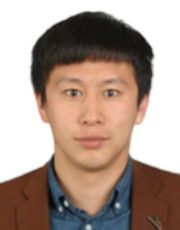
Fuguo Xu received the M.E. degree in control theory and control engineering from Yanshan University, Qinhuangdao, China, in 2016 and the Ph. D. degree in mechanical engineering from Sophia University, Tokyo, Japan, in 2019. Since 2019, he has been a Postdoctoral Fellow with the Department of Engineering and Applied Sciences, Sophia University. His current research interests include optimal control and applications in powertrain system of hybrid electric vehicles and connected vehicles.
List of topics
• Prologue: motivated by control of large-population systems (T. Shen)
• Mean field games and recent progress (M. Huang)
• Mean field social optimization: A directly decoupling method (B. Wang)
• A policy iteration method for linear-quadratic mean-field games (Z. Xu)
• MFG-based solution for cooperative operation between parking-based VPP and EVs (F. Xu)
Program
| 9:00-9:20 | Prologue: motivated by control of large-population systems Prof. Tielong Shen, Sophia University, Tokyo, Japan |
| 9:20-10:20 | Mean field games and recent progress Prof. Minyi Huang, Carleton University, Ottawa, Canada |
| 10:20-10:30 | Coffee Break |
| 10:30-11:10 | Mean field social optimization: A directly decoupling method Prof. Bingchang Wang, Shandong University, Jinan, China |
| 11:10-11:35 | A policy iteration method for linear-quadratic mean-field games Dr. Zhenhui Xu, Sophia University, Tokyo, Japan |
| 11:35-12:00 | MFG-based solution for cooperative operation between parking-based VPP and EVs Dr. Fuguo Xu, Sophia University, Tokyo, Japan. |
Workshop 3: Boolean Networks: Realization, Control, and Learning
Organizers
Yuhu Wu, Dalian University of Technology, China
Co-organizers
Carmen Del Vecchio, University of Sannio, Italy
Statement of Objectives
The past two decades have seen a renewed interest in Boolean Networks (BNs), which also called Boolean dynamical systems. In a BN, each state takes a binary value. A relevant example is represented by the ability of BNs to develop comprehensive biological network models that can generate testable hypotheses and effectively direct future wet-bench experiments. Building on this growing interest, this workshop has been structured to gather scientists involved in the field and to promote a comprehensive discussion on contemporary Realization, control, and learning aspects of BNs. The pre-conference workshop will address three major topics of interest: i) Minimum Realization and Pinning Control of Boolean (Control) Networks, ii) Reinforcement Learning in BNs, and iii) Reconstruction and Model Reduction of BNs. To cover this matter, talks will present recent work and future challenges in a broadly accessible manner.
Intended audience
An introductory overview on mathematical modeling of BDSs will set a common ground for speakers and audience. The list of speakers includes both junior and senior researchers and reflects diverse backgrounds in modeling and control.
Speakers
Yuhu Wu, Dalian University of Technology, China
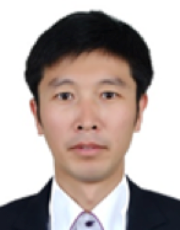
Dr. Yuhu Wu received the Ph.D. degree in Mathematics from Harbin Institute of Technology, Harbin, China, in January 2012. Since September 2012 he has held an assistant professor position at Harbin University of Science and Technology, China. He held a postdoctoral research position at Sophia University, Japan, from April 2012 to September 2015. In October 2015, he joined the School of Control Science and Engineering, Dalian University of Technology, China, where he is currently a full Professor. His research interests are related to optimal control, and nonlinear control theory and applications of control to Boolean networks, automotive powertrain systems, and unmanned aerial vehicles (UAVs).
Daizhan Cheng, Academy of Mathematics and Systems Science of China, China

Dr. Daizhan Cheng graduated from Tsinghua University in 1970, received M.S. from Graduate School, Chinese Academy of Sciences in 1981, and Ph.D. from Washington University, St. Louis, in 1985. Since 1990, he is a professor with Institute of Systems Science, AMSS, Chinese Academy of Sciences. He is the author/coauthor of 17 academic books, over 300 Journal Papers and over 170 Conference Papers. He is IEEE Fellow (2006-), IFAC Fellow (2008-). He was member of IEEE CSS Board of Governors (2009, 2015), and IFAC Council Member (2011-2014). He received Second National Natural Science Award of China twice (in 2008 and 2014), Outstanding Science and Technology Achievement Prize of CAS (2015), and the Automatica Best Paper Award (2008-2010), bestowed by IFAC. He is the founder of the semi-tensor product of matrices.
Carmen Del Vecchio, University of Sannio, Italy
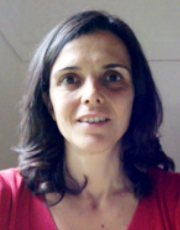
Dr. Carmen Del Vecchio received the Laura degree magna cum Laude from University of Naples Federico II in 1999. From 1999 until 2001 she worked in Accenture as senior analyst; in 2004 she received the Ph.D. degree in control and computer science from the University of Sannio, Italy. She is Assistant Professor in Automatic Control Engineering at the University of Sannio since 2011; in 2020 she qualified as Associate Professor (National qualification) in Automatic Control. Her research interests include optimization and control of interconnected processes through various theoretical instruments (i.e., decisions Markov chains, probabilistic Boolean networks, machine, and reinforcement learning) and applications to several fields: manufacturing, smart grids, medicine, and biology.
Koichi Kobayashi, Hokkaido University, Japan
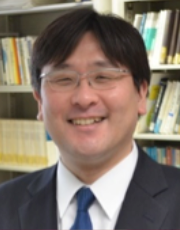
Dr. Koichi Kobayashi received the B.E. degree in 1998 and the M.E. degree in 2000 from Hosei University, and the D.E. degree in 2007 from Tokyo Institute of Technology. From 2000 to 2004, he worked at Nippon Steel Corporation. From 2007 to 2015, he was an Assistant Professor at Japan Advanced Institute of Science and Technology. Since 2015, he has been an Associate Professor at the Graduate School of Information Science and Technology, Hokkaido University. His research interests include discrete event and hybrid systems. He is a member of IEEE, IEEJ, IEICE, ISCIE, and SICE.
Yang Liu, Zhejiang Normal University, China

Dr. Yang Liu received the BS degree in Mathematics from Zhejiang Normal University, China, in 2003, and the PhD degree from Tongji University, China, in 2008. He is currently a professor at the College of Mathematics and Computer Science of Zhejiang Normal University. He was recognized by Clarivate Analytics as a Highly Cited Researcher in 2019 and 2020. He is an Associate Editor of Neur Process Lett and Math Mod Control. His research interests include hybrid systems and logical systems.
Min Meng, Tongji University, China
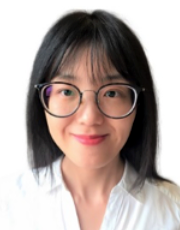
Dr. Min Meng received the B.S. and Ph.D. degrees from Shandong University, China, in 2010 and 2015, respectively. From July in 2017 to September in 2020, she was a Research Fellow in the School of Electrical and Electronic Engineering, Nanyang Technological University, Singapore. She had a position as a Research Associate at The University of Hong Kong, Hong Kong, China, from April to October in 2014, from July to September in 2016, and from January to March in 2017. From July 2015 to June 2016, she worked at City University of Hong Kong, Hong Kong, China, as a Research Associate. Since September in 2020, she has been a Research Professor in the Department of Control Science & Engineering and Shanghai Research Institute for Intelligent Autonomous Systems, Tongji University, Shanghai, China. Her research interests include Boolean networks, multi-agent systems, distributed games and optimization, distributed secure control and estimation, etc.
List of topics
• Prologue: Introduction and Motivation (Y. Wu)
• Minimum Realization of Boolean (Control) Networks (D. Cheng)
• Reinforcement Learning in Boolean Dynamical Systems (C. D. Vecchio)
• Reconstruction and Model Reduction of Boolean Networks Based on Fixed Points (K. Kobayashi)
• Pinning Control for Stabilization of Boolean Networks under Knock-out Perturbation (Y. Liu)
• Synchronization of Networks over Finite Fields (M. Meng)
Program
| 14:00-14:10 | Prologue: Introduction and Motivation Prof. Yuhu Wu, Dalian University of Technology, Dalian, China |
| 14:10-15:10 | Minimum Realization of Boolean (Control) Networks Prof. Daizhan Cheng, Academy of Mathematics and Systems Science of China, Beijing, China |
| 15:10-15:50 | Reinforcement Learning in Boolean Dynamical Systems Prof. Carmen Del Vecchio, University of Sannio, Benevento, Italy |
| 15:50-16:00 | Coffee Break |
| 16:00-16:25 | Reconstruction and Model Reduction of Boolean Networks Based on Fixed Points Prof. Koichi Kobayashi, Hokkaido University, Sapporo, Japan |
| 16:25-16:50 | Pinning Control for Stabilization of Boolean Networks under Knock-out Perturbation Prof. Yang Liu, Zhejiang Normal University, Jinhua, China |
| 16:50-17:15 | Synchronization of Networks over Finite Fields Prof. Min Meng, Tongji University, Shanghai, China. |


